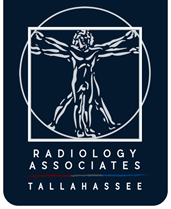Myelogram
Myelography is most commonly used to detect abnormalities affecting the spinal cord, the spinal canal, the spinal nerve roots and the blood vessels that supply the spinal cord.
Learn More About Myelogram
Myelography uses a real-time form of x-ray called fluoroscopy and an injection of contrast material to evaluate the spinal cord, nerve roots and spinal lining (meninges). It is particularly useful for assessing the spine following surgery and for assessing disc abnormalities in patients who cannot undergo MRI.
Our interventional department provides procedures that many times are routinely performed in a hospital setting. We offer these services in the outpatient setting with your comfort in mind.
Our dedicated registered nurses provide your physician easy access for scheduling of procedures. We strive to perform your procedure at the scheduled time and offer convenient, easy access to our facility and ample parking.
Your physician’s office should contact one of our registered nurses to schedule your procedure. We will then contact you, schedule your appointment, and give you pre-procedure instructions.
You should inform your physician of any medications being taken and if there are any allergies, especially to iodinated contrast materials. Also inform your doctor about recent illnesses or other medical conditions.
Specifically, the physician needs to know if (1) you are taking medications that need to be stopped a few days before the procedure and (2) whether you have a history of reaction to the contrast material used for the myelogram.
Some drugs should be stopped one or two days before myelography. These include certain antipsychotic medications, antidepressants, blood thinners, and some other drugs. The most important type of medication that must be stopped is blood thinners (anticoagulants). If you are taking blood thinners, you should speak with your physician about alternative methods of maintaining anticoagulation while you are undergoing a myelogram.
After your procedure, a nurse will provide you with instructions prior to leaving our facility. It is always recommended that you have someone accompany you for your procedure that will be able to drive you home.
Following the procedure, one of our board-certified Radiologists will interpret your exam and send a report to your physician within 5 business days. Contact your referring physician for any information pertaining to the findings.
Typically your referring physician will schedule an appointment for you. If you have been asked to schedule the appointment yourself, please have your physician’s order and any pre-authorization information required by your insurance or health plan provider in hand, and call 850-878-4127.
What happens during your procedure can vary considerably depending on the procedure being performed and your specific circumstances. Prior to your procedure, we will explain in detail what to expect. If you have any questions, please call our office and we will be happy to review your procedure.
The procedure usually takes 30 to 60 minutes. Following the conclusion of the myelogram, you will be escorted to a recovery area where vital signs and observations are made for one to two hours. You may be encouraged to take fluids at this time to help eliminate the contrast material from your body and to prevent headache.
Following your myelogram, you should refrain from strenuous physical activity and from bending over for one to two days.
For more information on this and other radiology procedures, please visit www.radiologyinfo.org.
Interventional Radiology is an area of radiology that specializes in performing minimally invasive, image-guided procedures. Many of these procedures have become the treatment of choice in many cases because they offer lower risk, less pain, and shorter recovery time compared to traditional surgical techniques.
For more information on this and other radiology procedures, please visit www.radiologyinfo.org.
